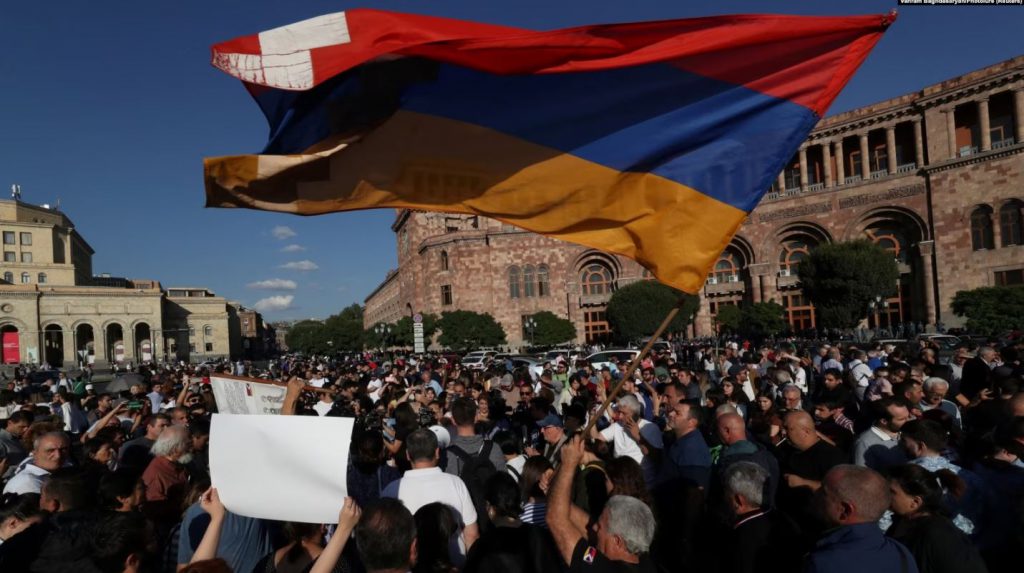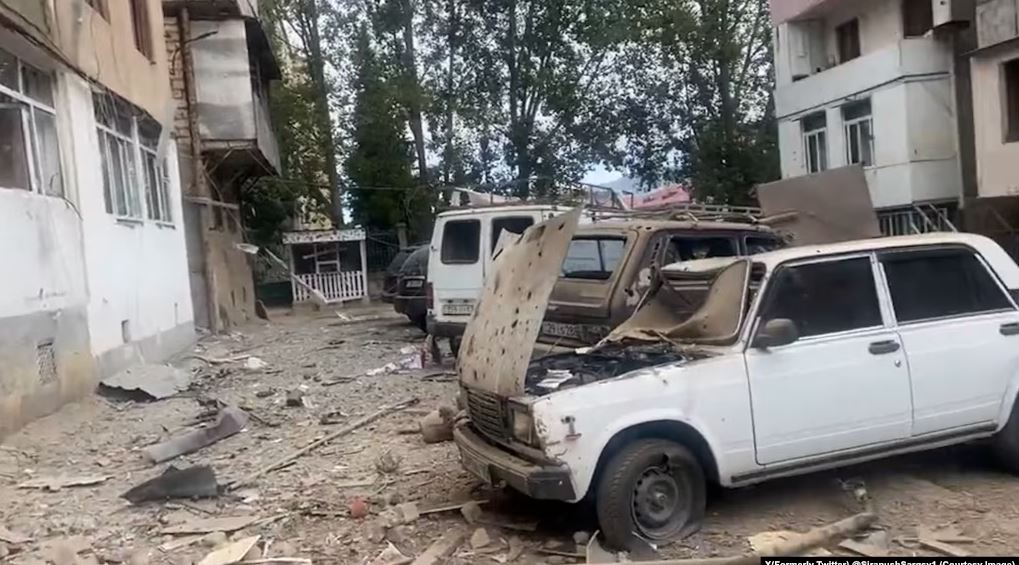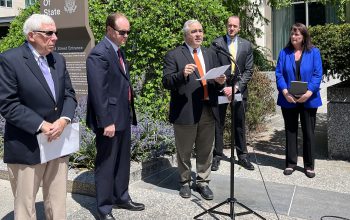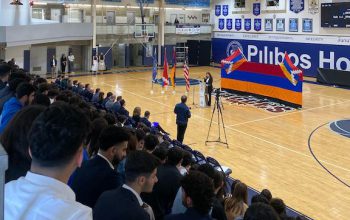Artsakh (Nagorno-Karabakh) agreed to disband its armed forces and discuss its “reintegration” into Azerbaijan as part of a Russian-brokered ceasefire announced on Wednesday 24 hours after Baku launched a large-scale military offensive in the Armenian-populated region.
Karabakh’s leadership said early in the afternoon that it has no choice but to agree to the deal proposed by Russian peacekeeping forces because of severe military and humanitarian consequences of the offensive.
The office of Samvel Shahramanian, the Karabakh president, said Azerbaijani forces managed to seize a number of strategic heights and road junctures during attacks accompanied by heavy shelling of Karabakh Armenian positions and civilian targets. It said that Karabakh’s Defense Army is greatly outnumbered and outgunned by the Azerbaijani side despite putting up fierce resistance and inflicting heavy losses on the enemy. It also pointed to the international community’s “insufficient” reaction to Baku’s actions.
A separate statement issued by Stepanakert shortly afterwards clarified that the ceasefire, which was due to take effect at 1 p.m. local time, commits the Karabakh Armenians to disarming and disbanding their armed forces and removing their heavy weaponry from Karabakh.
The statement also announced that Karabakh representatives and Azerbaijani officials will start talks on Thursday on the region’s possible “reintegration” into Azerbaijan and the Karabakh Armenians’ rights and security “within the framework of the Azerbaijani constitution.” Their first meeting will take place in the Azerbaijani town of Yevlakh.
The Russian Defense Ministry confirmed the agreement, saying that it will be implemented “in coordination with the commanders of the Russian peacekeeping contingent.”
There was also an official confirmation from Baku. The Azerbaijani Defense Ministry said it has ordered its troops to stop their “counterterrorism actions” in Karabakh. It claimed that they have seized over 90 Karabakh army positions during the offensive.
Meanwhile, the Armenian government distanced itself from the truce accord, with Prime Minister Nikol Pashinyan flatly denying any involvement in it. In a video address to the nation, he said Yerevan is “taking note” of the deal while disagreeing with one of its provision calling for the withdrawal of Armenian troops from Karabakh. He insisted that Armenia has had no military presence in the region since 2021.
Pashinyan, who is blamed by his political foes for the latest escalation, also said the ceasefire means that the Russians have now fully assumed an “obligation to ensure the security of the Armenians of Nagorno-Karabakh.”
“We hope that by taking such a step the Russian peacekeeping contingent will fully fulfill its obligations,” he said amid renewed antigovernment protests in Yerevan.

The protesters are condemning Yerevan’s failure to intervene in the fighting in Karabakh and demanding Pashinyan’s resignation. The Armenian premier again defended his cautious stance, insisting that a key purpose of the Azerbaijani offensive was to draw Armenia into the fighting and give Baku a pretext to launch military aggression against his country as well.
Pashinyan’s government urged Russian peacekeeping forces in Karabakh to step in to protect Karabakh’s population shortly after the outbreak of the hostilities on Tuesday. Russian officials ruled out such intervention.
Speaking on Wednesday morning, Kremlin spokesman Dmitry Peskov dismissed the Armenian criticism of the Russian peacekeepers, saying that Baku took military action within Azerbaijan’s “de jure territory.”
“We don’t accept such rebukes directed at us, especially after the Armenian side’s official decision to recognize Karabakh as part of Azerbaijan,” Peskov told reporters.
The Russian Foreign Ministry likewise reiterated overnight that Pashinyan’s decision to recognize Azerbaijani sovereignty over Karabakh “radically influenced the outcome of the Nagorno-Karabakh settlement.”
Source: Azatutyun.am




